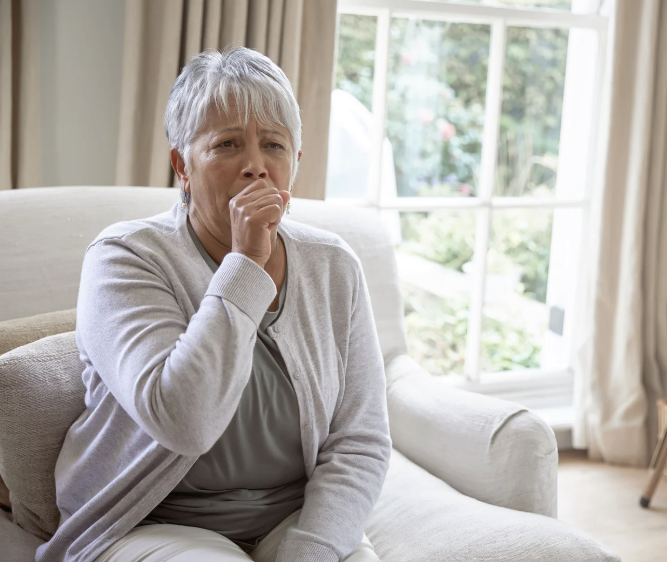Each year, flu season poses unique challenges for seniors and their loved ones. Older adults are more vulnerable to influenza because of age-related changes in the immune system, and for those with chronic health conditions, the risks can be even higher. Families naturally want reassurance that their loved ones in assisted living or memory care communities are well protected during these critical months.
At Courtyard Manor, the health and safety of residents are always top priorities, and flu season is no exception. By combining preventive measures, vaccination programs, and thoughtful policies, assisted living communities work diligently to keep residents safe. Here’s what families should know about senior care safety during flu season.
Why Seniors Are at Greater Risk
The Centers for Disease Control and Prevention (CDC) consistently emphasize that people over the age of 65 are among the most vulnerable groups during flu season. Seniors may experience complications such as pneumonia, dehydration, or worsening of existing conditions like heart disease and diabetes. Because of this increased risk, assisted living communities place extra focus on prevention and early intervention.
The Role of Vaccination
Annual Flu Shots
The most effective step in reducing the risk of influenza is vaccination. Assisted living communities typically organize annual flu shot clinics for residents and staff, ensuring everyone has access to the vaccine on-site. This convenient approach removes barriers and increases participation.
Families can encourage their loved ones to get vaccinated early in the season, usually between September and October, when the flu shot is most effective. Many communities also coordinate with local health providers to ensure the latest vaccines are available, including high-dose versions specifically designed for older adults.
Staff Vaccination
It isn’t just residents who need protection. Staff members also receive vaccinations to help minimize the risk of transmission. This collective effort helps establish a “community shield,” where the spread of illness is slowed because more people are protected.
Infection Control Measures
Enhanced Cleaning Protocols
Assisted living communities heighten cleaning and sanitation practices during flu season. High-touch surfaces such as door handles, handrails, and dining tables are disinfected multiple times daily. Common areas are carefully maintained to reduce the chance of germs spreading.
Hand Hygiene and Respiratory Etiquette
Residents, staff, and visitors are reminded to wash hands frequently, use hand sanitizer, and cover coughs and sneezes properly. Communities often provide easily accessible sanitizing stations throughout hallways and communal areas to make these practices part of daily life.
Monitoring and Early Detection
Care staff are trained to watch for flu symptoms such as fever, cough, sore throat, or fatigue. Early detection means immediate action—whether isolating the resident if necessary, notifying healthcare providers, or initiating treatment quickly.
Visitor Policies During Flu Season
Family visits are essential for residents’ emotional well-being, but during flu season, policies may be adjusted to balance safety with connection.
- Health Screenings: Visitors may be asked to confirm they are symptom-free before entering.
- Masking and Hygiene: Wearing masks, washing hands, and using sanitizer before and after visits may be required.
- Flexible Alternatives: When in-person visits pose too much risk, assisted living communities often provide virtual visit options. Video calls and phone check-ins ensure families can stay connected while protecting vulnerable residents.
Families should stay informed about any seasonal updates to visitation guidelines and work with staff to find the best balance between safety and meaningful interaction.
How Assisted Living Communities Mitigate Flu Risk
Beyond vaccines, cleaning, and visitor policies, communities employ several strategies to protect residents:
- Encouraging Healthy Habits: Nutritious meals, regular hydration, and exercise help strengthen immune systems.
- Adjusting Group Activities: During peak flu season, group activities may be modified to reduce crowding or moved to larger, well-ventilated spaces.
- Providing Medical Support: Nurses and caregivers work closely with healthcare providers to deliver prompt treatment when needed, preventing minor illnesses from becoming severe.
- Staff Training: Ongoing staff education ensures caregivers are prepared to follow the latest CDC and state health guidelines.
These measures create a comprehensive approach, giving families peace of mind that their loved ones are being cared for with the highest safety standards.
How Families Can Support Flu Safety
Families also play a role in keeping seniors safe during flu season:
- Get vaccinated before visiting.
- Stay home if you are sick, even with mild symptoms.
- Encourage your loved one to follow handwashing and hygiene practices.
- Provide cozy, immune-boosting comforts like warm blankets, teas, and vitamin-rich snacks during visits.
By partnering with assisted living communities, families help create an environment where safety and wellness go hand in hand.
Peace of Mind for Families During Flu Season
Flu season can feel daunting, but with the right precautions, seniors in assisted living communities can remain both safe and supported. Vaccinations, infection control, visitor policies, and proactive care all contribute to minimizing risk and maximizing peace of mind.
At Courtyard Manor, our commitment extends beyond medical care—we strive to provide an environment of comfort, joy, and community, even in the midst of flu season. By working together with families, we can ensure every resident thrives during the colder months, protected by both science and compassion.

